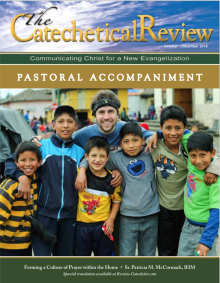The catechesis of adults is one of the great catechetical challenges in this time of the New Evangelization. This is a particularly difficult and unique challenge because, as we are all keenly aware, many of the adults in our parish pews are poorly catechized and are not only in great need of authentic and systematic catechesis but are also in need of a evangelization, or a presentation of the basic Gospel message. St. John Paul II addresses this reality in Catechesi Tradendae when he refers to many adult Catholics as “quasi-catechumens.” He reminds us that adult catechesis today needs to be “directed to those who in childhood received a catechesis suited to their age but who later drifted away from all religious practice and as adults find themselves with religious knowledge of a rather childish kind. It is likewise directed to those who feel the effects of a catechesis received early in life but badly imparted or badly assimilated” (art. 44). If we are honest in our assessment, quasi-catechumens comprise perhaps 70 to 80% of the adults occupying the pews at any given Sunday Mass. To make things even more urgent, the New Evangelization requires and even demands that the lay faithful take up their particular baptismal vocation to be present and active in the ordinary places of secular culture, and to work within it like leaven to build up the kingdom of God.[i] Until the laity are able to understand and live out this crucial mission, the New Evangelization is in danger of never becoming a reality despite the extraordinary movement and promptings of the Holy Spirit in our time. St. John Paul II expresses this urgency clearly when he states, “A new state of affairs today both in the Church and in social, economic, political and cultural life, calls with a particular urgency for the action of the lay faithful. If lack of commitment is always unacceptable, the present time renders it even more so. It is not permissible for anyone to remain idle.”[ii]
The rest of this online article is available for current Guild members.
This article is from The Catechetical Review (Online Edition ISSN 2379-6324) and may be copied for catechetical purposes only. It may not be reprinted in another published work without the permission of The Catechetical Review by contacting [email protected]


















